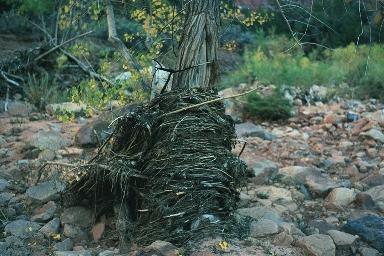*To keep up to date on my current writing and articles, please visit my page at GuerrillaCamping.Blogspot.com*
Campsite Selection – Guerilla Backpacking 101.2
For the normal camper, a paragraph suffices and thousands have written about it. Pick flat ground, free of rocks, no dead branches overhead, no gullies to route water underneath you, someplace to hang your food. For the guerilla camper though, there are many other things to consider. Such as, what if you’re in the city? What if you aren’t supposed to camp where you are? In major wilderness areas, you are usually free to camp where you like, but the same does not hold true in the urban, suburban and rural sprawl that you are most likely to encounter while traveling in developed nations.
City Camping:
Having encountered black bears, over-zealous raccoons, mosquitoes, mountain lions and a slew of other frightening of uncomfortable situations, nothing strikes a chord of fear in my soul more than the notion of bedding down outdoors in a city of a few hundred thousand. For one, humans are more dangerous than bears and sleeping on a sidewalk opens you up to more potential abuse than anywhere else. That said; I have had it happen where I passed through nothing but sprawl for three or four days, with the nearest hostile hundreds of miles away.
You best locations in the city are away from other homeless. I tend to hunker down after hours behind businesses, preferably in commercial districts, since they usually get ignored all night. The undersides of freeway overpasses, if secluded enough, are great locations and usually the uppermost corners of the embankments are leveled out and great for pitching tents. If you can be seen from a road though, don’t be surprised if the police light you up at 3am and tell you to move on.
One of the most important tools for sleeping in the city is a hostelry card. Usually for twenty or thirty bucks you can get a warm bed indoors, surrounded by people from all over the world. No cops, no hooligans trying to steal your gear and breakfast in most hostiles is an exciting process of meeting tons of new people. This card is also a good way to prove your story that you’re simply backpacking someplace and are not a vagrant.
Suburban Camping:
Camping the suburbs can be blissfully easy or intensely difficult, usually depending on the attitudes of local police, citizens and and nature of the area. Often in suburban areas, I will hang my hammock in parks or use a poncho to make a simple bivy sack under some playground equipment. At night when the local police roll through and shine their lights across the park, they are looking for shadows to give you away. Keep this in mind; hang your hammock higher than usual or pitch a lean-to in the middle of some shrubs. Also, be wary when setting up that nobody sees you. I’ve had park goers call the police on me in some of the more uppity locales.
Another option I’ve taken in suburban areas is a variation on the will work for food sign. “Walking to Ohio! Can I pitch my tent in your backyard?” works surprisingly well, especially if you look clean-cut and non-menacing. When I do this routine, I often setup outside of grocery stores, as they expose you to a wide array of people and offering to carry and load groceries for people is a great introduction. Before I got the blackpack, I used a standard OD green military sack. Often, some old vet would see me, ask if I served and I would wind up an hour later with hot food and cold beer with a sleeping spot on their couch swapping stories from our respective wars.
Rural Camping
Waking up to the blast of buckshot over your head is no good and it’s only happened to me on farmland. Generally, when passing through rural areas, I start talking to people on the roadside around five or six in the evening, explaining where I’m walking and asking them if I can set up in a corner of their field. I tell them I can work for the privilege and that I know how to mend fences, milk cows and do a variety of field work. Surprisingly, I seldom have to ask more than two or three people before finding a place and they usually let me string up in a barn or shed.
If worse comes to worse however, rural areas are wide open for stealth camping. I generally try to hang my hammock on the side of a hill a few dozen feet from the road. Do not set up in roadside ditches, as those often flood when the irrigation systems kick on in the morning. (Learned that lesson the hard way) If you must camp on somebody’s property with out permission, be respectful, quiet and hard to see. One night in Georgia, I was camped out on what I thought would be an unnoticed corner of a tobacco field, only to be woken up at four in the morning by a very pissy farmer with his very loud shotgun (The aforementioned buckshot) leveled at my head. After talking him down a bit, he still made me break down my stuff and walked me to the edge of his property. Rather than find a new place to sleep, I considered it morning, walked about a mile, made breakfast and set out for the day.


Great blog....
ReplyDeleteReal informative post....these are the things i never knew about camping...Thanks:)
Camp Stove